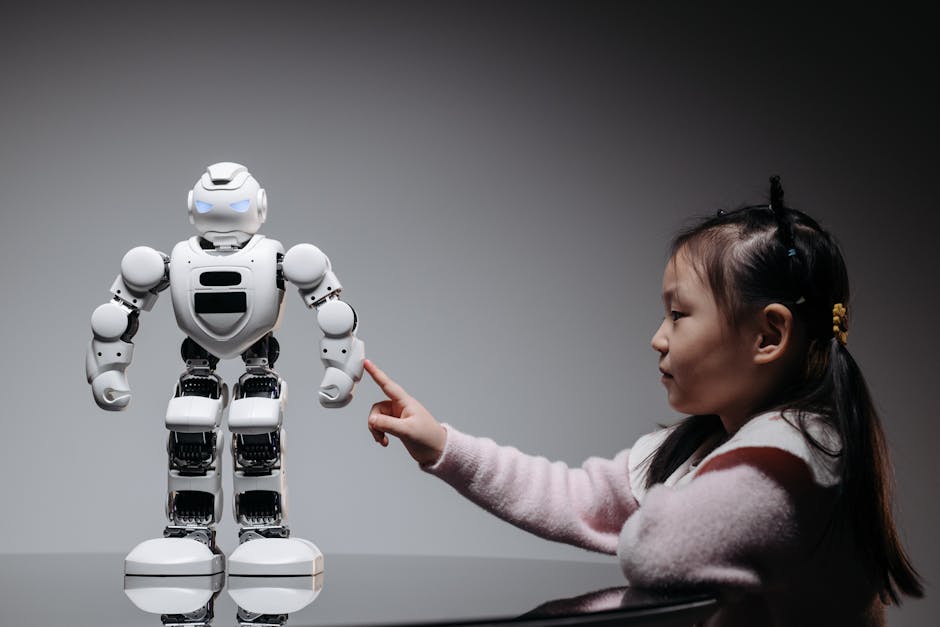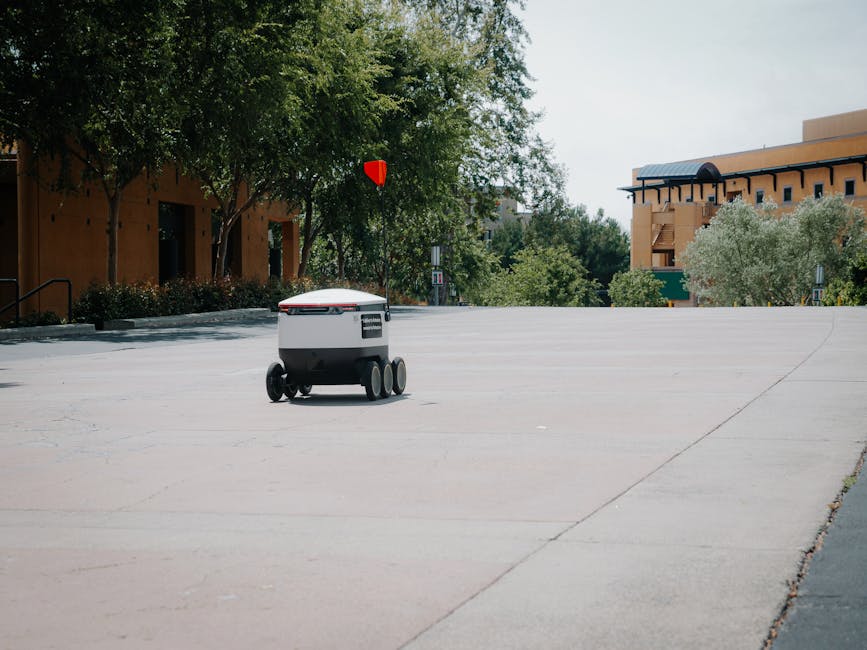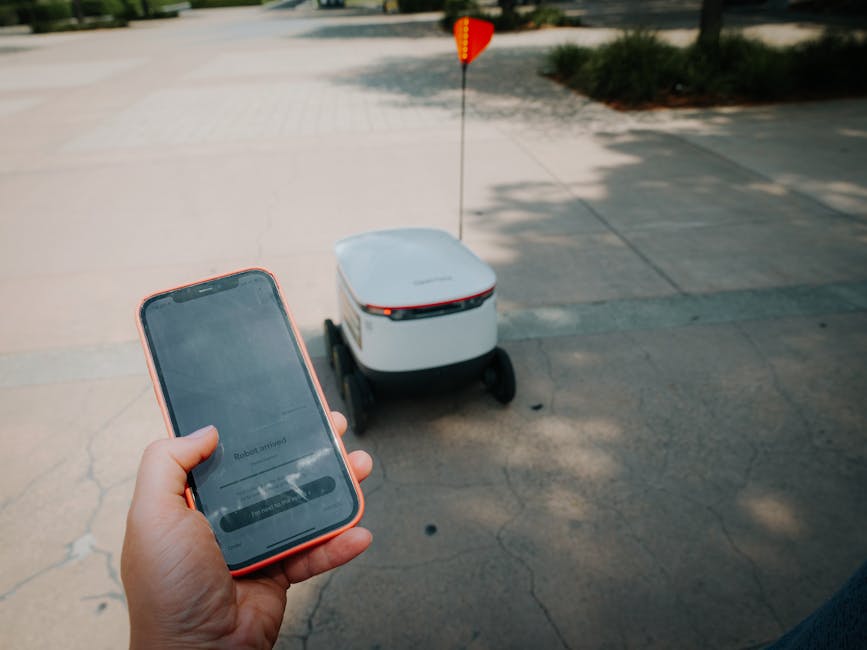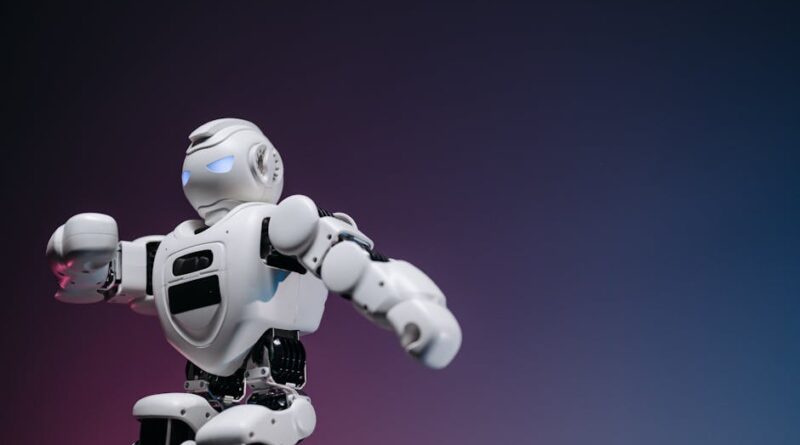The Role of AI in Smart Cities
Did you know that by 2050, over two-thirds of the world’s population will live in cities? that’s a lot of people! To keep up with this growth, cities are turning to technology. One of the biggest game-changers is Artificial Intelligence (AI). But what exactly does AI do in smart cities? Lets dive in!
What Are Smart Cities?

Smart cities use technology to improve the quality of life for their residents. Imagine walking through a park where lights turn on automatically as it gets dark. Or think about a traffic system that adjusts signals based on real-time traffic flow. These are just a couple of examples of how AI can enhance city living.
How Does AI Help in Smart Cities?

AI plays a vital role in making cities smarter. Heres how:
- Traffic Management: AI can analyze traffic patterns and manage stoplights. This means less waiting and more moving.
- Energy Efficiency: AI systems can optimize energy use in buildings, saving money and resources.
- Public Safety: AI helps in monitoring crime and dispatching police where needed.
- Waste Management: AI can predict when trash bins will be full, ensuring timely pickups.
These systems don’t just make life easier. They also make cities more sustainable. A smart city is a greener city!
Can AI Improve Public Transportation?

Absolutely! Public transport is essential for urban life. Heres how AI enhances it:
- Real-Time Tracking: Ever wondered when your bus will arrive? AI can provide real-time updates, so you don’t have to wait long.
- Route Optimization: AI analyzes data to find the best routes for buses and trains, reducing travel time.
- Demand Forecasting: AI predicts when and where people will need public transport, allowing for better scheduling.
As a result, commuting becomes smoother and more efficient. You can spend less time in traffic and more time enjoying your day.
How Is AI Used in Urban Planning?

Urban planning is crucial in shaping how cities grow. AI aids in this process by:
- Data Analysis: AI can analyze data from various sources, like population growth and traffic patterns, helping planners make informed decisions.
- Simulation: AI models can simulate how new developments will impact traffic, air quality, and the community.
- Public Engagement: AI can help cities engage residents in planning processes. Think of chatbots that gather feedback easily.
These tools enable planners to create spaces that suit the needs of residents while being efficient and sustainable.
Can AI Improve Public Health in Cities?
Yes, AI can significantly impact public health. Heres how it works:
- Predictive Analytics: AI analyzes health data to predict disease outbreaks. This helps cities respond quickly to health crises.
- Air Quality Monitoring: AI tools can measure air pollution levels, alerting residents when it’s unsafe to be outside.
- Telemedicine: AI enables remote healthcare services, making it easier for people to access medical help.
In these ways, AI acts as a guardian for public health, ensuring cities are safer places to live.
What About Sustainability and the Environment?
Sustainability is a hot topic, especially in urban areas. AI contributes by:
- Energy Management: AI can optimize energy consumption in buildings. This cuts costs and reduces carbon footprints.
- Water Management: AI monitors water usage and detects leaks, conserving this vital resource.
- Sustainable Transport: AI can promote the use of electric vehicles, improving air quality.
These initiatives not only support the environment but also help create a more livable city for everyone.
How Does AI Affect Citizen Engagement?
AI can change how citizens interact with their city. Heres what it can do:
- Smart Apps: Many cities now have apps powered by AI. These apps provide information on local events, public transport, and even city services.
- Feedback Tools: AI chatbots allow residents to voice their concerns and suggestions easily.
- Transparency: AI can analyze city data and present it to citizens in understandable ways, boosting trust in local government.
With these tools, citizens feel more involved and connected to their community.
Are There Challenges with AI in Smart Cities?
While AI offers many benefits, there are challenges too. Some of these include:
- Data Privacy: Collecting data raises concerns about how it is stored and used.
- Bias in Algorithms: If AI systems are not designed carefully, they can unintentionally favor certain groups over others.
- Infrastructure Costs: Implementing AI technologies can be expensive and requires significant investment.
These challenges need to be addressed to ensure AI works for everyone in the city.
what’s Next for AI and Smart Cities?
The future looks bright for AI and smart cities. Here are some exciting trends to watch:
- Increased Connectivity: More devices will connect to the internet, gathering data and improving city services.
- AI-Driven Decision Making: Cities will increasingly rely on AI to make decisions that affect daily life.
- Focus on Equity: There will be a push to ensure that AI benefits all residents, not just a select few.
As we move forward, the relationship between AI and city living will continue to evolve, promising a better quality of life for everyone.
Conclusion: Embracing the Smart City Revolution
AI is transforming cities into smarter, more efficient places to live. From traffic management to public health, the benefits are clear. However, it’s crucial to tackle challenges like data privacy and bias to make the most of this technology.
As we embrace the future, remember that you can get involved. Stay informed about local initiatives. Participate in community discussions. Together, we can help shape our smart cities for the better.
Looking for more on smart technology? Check out this article on smart technology in cities.



